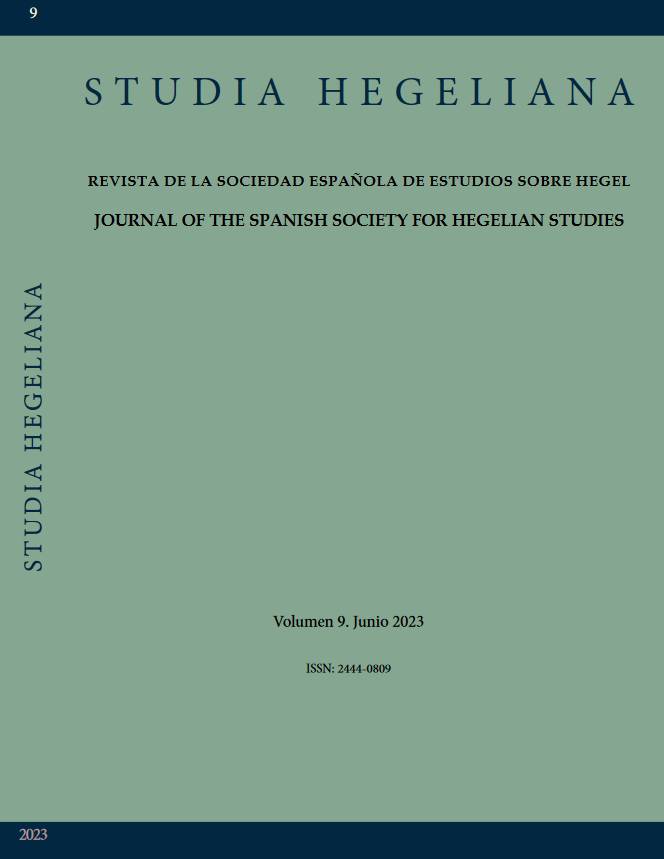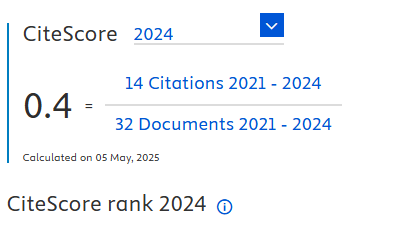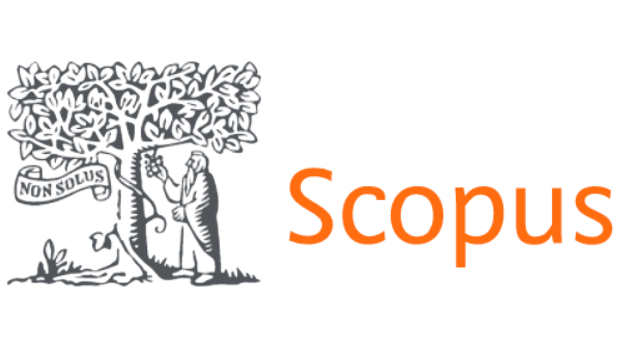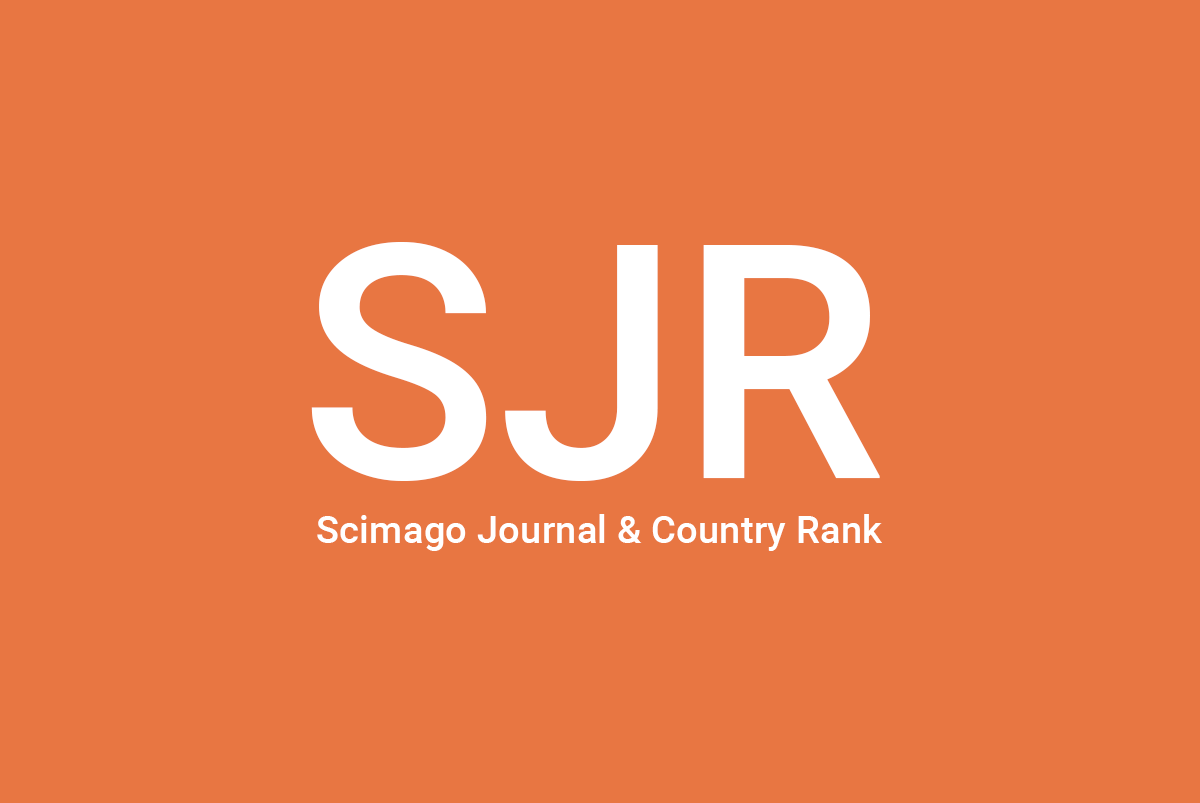Un Contagio penetrante
Hegel e la dialettica dell'illuminismo
DOI:
https://doi.org/10.24310/Studiahegelianastheg.v9i.15348Keywords:
Enlightenment – Reason - ModernityAbstract
The text analyzes three different conjugation of the notion of Enlightenment in Hegel’s reflection. It aims to show that Hegel’s goal is the unfold of a new notion of reason, in comparison to which the enlightened reason proves to be a necessary, yet incomplete instance. In Hegel’s view Enlightenment becomes an historical experience of negation of the existence which spreads out as an infectious disease destroying the collective body that hosts it. However it cannot and must not be stopped. Rather, the only way to produce the antibodies necessary to overcome that unrestrained contagion is to undergo the abyss into which Enlightenment plunges the link between the I and the world, the particular and the universal.
Downloads
Metrics
Publication Facts
Reviewer profiles N/A
Author statements
Indexed in
-
—
- Academic society
- N/A
- Publisher
- Universidad de Málaga
References
Hegel, G.W.F.,Gesammelte Werke (in Verbindung mit der Hegel-Kommission der Rheinisch-Westfälischen Akademie der Wissenschaften und dem Hegel-Archiv der Ruhr-Universität Bochum. Hamburg: Meiner, 1968 ss (cit. come GW, seguito da numero di volume e numero di pagina).
Hegel, G.W.F., Werke in 20. Bänden, E. Moldenhauer-K.M. Michel (ed.). Frankfurt: Suhrkamp, 1979 (cit. come TWA, seguito da numero di volume e numero di pagina).
Hegel, G.W.F., Glauben und Wissen oder die Reflexionsphilosophie der Subjectivität, in der Vollständigkeit ihrer Formen, als Kantische, Jacobische, und Fichtesche Philosophie in GW, 4 (cit. come GuW, seguito da numero di pagina). Traduzione italiana di R. Bodei. Fede e sapere in Primi scritti critici. Milano: Mursia. (cit. come FeS seguito da numero di pagina).
Hegel, G.W.F., Phänomenologie des Geistes, in GW, 9. Hrsg. v. Bonsiepen, W. u. Heede R. Hamburg: Meiner, 1980 (cit. come Phän. seguito da numero di pagina). Traduzione italiana di G. Garelli. Fenomenologia dello spirito. Torino: Einaudi 2008 (cit. come Fen., seguito da numero di pagina).
Hegel, G.W.F., Differenz des Fichte’schen und Schelling’schen Systems der Philosophie in Beziehung auf Reinhold’s Beyträge zur leichtern Übersicht des Zustand der Philosophie zu Anfang des neunzehnten Jahrhunderts, in GW, 4. Hrsg. v. Buchner H. u. Pöggeler O. Hamburg: Meiner 1968 (cit. come DS, seguito da numero di pagina). Traduzione italiana di R. Bodei, Differenza tra i sistemi di filosofia di Fichte e di Schelling, in Primi scritti critici, cit. (cit. come Diff., seguito da numero di pagina).
Hegel, G.W.F., Wissenschaft der Logik. Die Lehre vom Begriff (1816). Hrsg. v. Hogemann, F. u. Jaeschke, W. Hamburg: Meiner 1994 (cit. come WL, seguito da numero di pagina). Trad. italiana di A. Moni. Scienza della logica, 2 voll.. Roma-Bari: Laterza 1981 (cit. come CdL, seguito da numero di pagina).
Hegel, G.W.F., Enzyklopädie der philosophischen Wissenschaften (1830). Hrsg. v. Fr. Nicolin u. O. Pöggeler. Hamburg: Meiner 1969. Trad. italiana di V. Verra, Enciclopedia delle scienze filosofiche in compendio. Torino: UTET 2004.
Hegel, G.W.F., Lezioni sulla storia della filosofia, vol. III,2. Traduzione italiana di E. Codignola e G. Sanna. Firenze: La Nuova Italia 1964 (cit. come Lez.st.fil., seguito da numero di pagina).
Hegel, G.W.F., Lezioni sulla filosofia della storia, vol. IV. Traduzione italiana di G. Calogero e C. Fatta. Firenze: La Nuova Italia 1963.
Letteratura secondaria
Beiser, F.C., The Fate of Reason. German Philosophy from Kant to Fichte. Cambridge-London: Harvard University Press 1993.
Bodei, R., La civetta e la talpa. Sistema ed epoca in Hegel. Bologna: Il Mulino 2014.
Brauer, D., Hegels Aufklaerung der Aufklaerung, in W. Welch-K. Vieweg (Hsg.), Hegels Phaenomenologie des Geistes. Ein kooperativer Kommentar zu einem Schlüsselwerk der Moderne. Suhrkamp: Frankfurt am Main 2008, pp. 474-88.
Dilthey, W., Die Jugendgeschichte Hegels und andere Abhandlungen zur Geschichte des deutschen Idealismus, in Gesammelte Schriften, Bd. IV. Stuttgart/Goettingen: B.G. Teubner Verlagsgesellschaft-Vandenhoeck & Ruprecht, 1968. Traduzione italiana di G. Cacciatore e G. Cantillo. Storia della giovinezza di Hegel e frammenti postumi, Napoli: Guida 1986.
Hinchmann, L., Hegel’s Critique of the Enlightenment. Tampa: University Press of Florida, 1984.
Hüning, D., “Hegels Kritik der Aufklärungsphilosophie in der Phänomenologie des Geistes”, in Berger, M.-Reichardt, T.-Staedtler, M. (Hrsg.), Der Geist geistloser Zustaende. Religionskritik und Gesellschaftstheorie. Muenster: Verlag Westfaelisches Dampfboot 2012.
Landucci, S., Hegel: la coscienza e la storia. Approssimazione alla “Fenomenologia dello spirito”. Firenze: La nuova Italia 1976.
Negri, A., “Hegel e il linguaggio dell’illuminismo” in Giornale critico della filosofia italiana 1975, 6, pp. 447-529.
Pinkard, T., “Romanticed Enlightenment? Enlightened Romanticism? Universalism und Particularim in Hegel’s Understanding of the Enlightenment” in Bulletin of the Hegel Society of Great Britain 1997, pp. 18-38.
Pinkard, T., Hegel. A Biography. Cambridge: Cambridge University Press, Cambridge 2001.
Racinaro, R., Hegel e l’illuminismo. Milano: Guerini & Associati 2001.
Stewart, J., “Hegel and the Myth of Reason” in The Owl of Minerva 1995, 26, 2, pp. 187-200.
Stolzenberg, J., “Hegel’s Critique of the Enlightenment in ‘The Struggle of the Enlightenment with Superstition’”, in Westphal, K.R. (ed.), The Blackwell Guide to Hegel’s Phenomenology of Spirit. Oxford: Blackwell 2008, pp. 190-208.
Virno, P., “Coscienza infelice” e “anima bella”. Commentario alla Fenomenologia dello spirito di Hegel. Milano: Guerini & Associati 1999.
Downloads
Published
How to Cite
Issue
Section
License
This journal provides immediate free access to its content under the principle of making research freely available to the public. All contents published in Studia Hegeliana. Journal of the Spanish Society for Hegelian Studies, are subject to the Creative Commons Attribution-NonCommercial-ShareAlike 4.0 licence (specifically, CC-by-nc-sa), the full text of which can be found at <http://creativecommons.org/licenses/by-nc-sa/4.0>. Derivative works are therefore permitted as long as they are not used for commercial purposes. The original work may not be used for commercial purposes. The journal is not responsible for the opinions expressed by the authors of the works published in it.
It is the authors' responsibility to obtain the necessary permissions for images that are subject to copyright.
Authors whose contributions are accepted for publication in this journal retain the copyright. It is non-exclusive right to use their contributions for scholarly, research and educational purposes, including self-archiving or deposit in open access repositories of any kind.
Since volume 7 of 2021 the journal Studia Hegeliana has changed the copyright. Since that year the authors have retained the copyright.
The electronic edition of this journal is published by the Editorial de la Universidad de Málaga (UmaEditorial), being necessary to cite the source in any partial or total reproduction.







244.png)






















